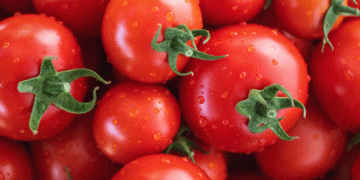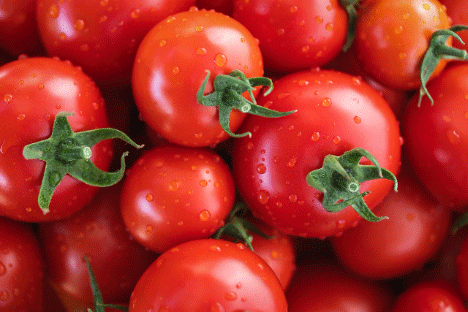In 2024, Greece has seen a remarkable 20% increase in tomato imports, with the vast majority of these imports coming from Turkey. As of December 2024, the total tomato imports into Greece have reached approximately 29,500 tons, a notable rise from the previous year. Out of this total, 17,500 tons are from Turkey, highlighting the country’s dominant role in Greece’s tomato supply chain.
From October 1st to December 12th, the influx of tomatoes into Greece has surged, reaching around 7,500 tons during this period. Of these, 5,000 tons were sourced from Turkey, while smaller quantities came from countries like the Netherlands (750 tons), Belgium (450 tons), Albania (240 tons), and Morocco. The increased reliance on Turkish imports is evident in the statistics, as the country continues to be a primary supplier of tomatoes for Greece, fulfilling much of the demand, especially during the winter months.
The import trend is not without its challenges for the Greek agricultural sector. While imports increase, the Greek tomato export figures have seen a slight dip. From January 1st to December 19th, 2024, Greece’s tomato exports are estimated at 34,000 tons, marking a 1% decrease compared to the same period in 2023. This decline may signal a need for strategic adjustments within Greece’s domestic production and export strategy.
According to Georgios Polychronakis, Special Advisor to the Incofruit-Hellas Exporters Association, the import surge could be linked to various factors such as seasonal shortages, shifts in market demand, and perhaps even the pricing dynamics in the Mediterranean region. Greece’s geographical proximity to Turkey plays a significant role in its import pattern, allowing Turkish tomatoes to enter the Greek market relatively quickly and cost-effectively.
In terms of domestic production, while Greece remains a key producer of tomatoes, these imports have impacted local farmers and agricultural planners. The country’s tomato production is typically strong, with large-scale operations in areas such as Central Macedonia and Crete. However, the competition from imported tomatoes, particularly from Turkey, may exert pressure on local prices and production cycles.
Greece’s tomato market in 2024 shows a clear increase in imports, particularly from Turkey, which now dominates the import market. While Greece continues to export a significant volume of tomatoes, the slight decline in exports alongside the surge in imports may suggest the need for an evaluation of domestic production strategies. Greek farmers, agricultural engineers, and policymakers must adapt to these changes, considering factors such as price competitiveness, crop rotation, and future market demands to sustain both local production and export potential.































